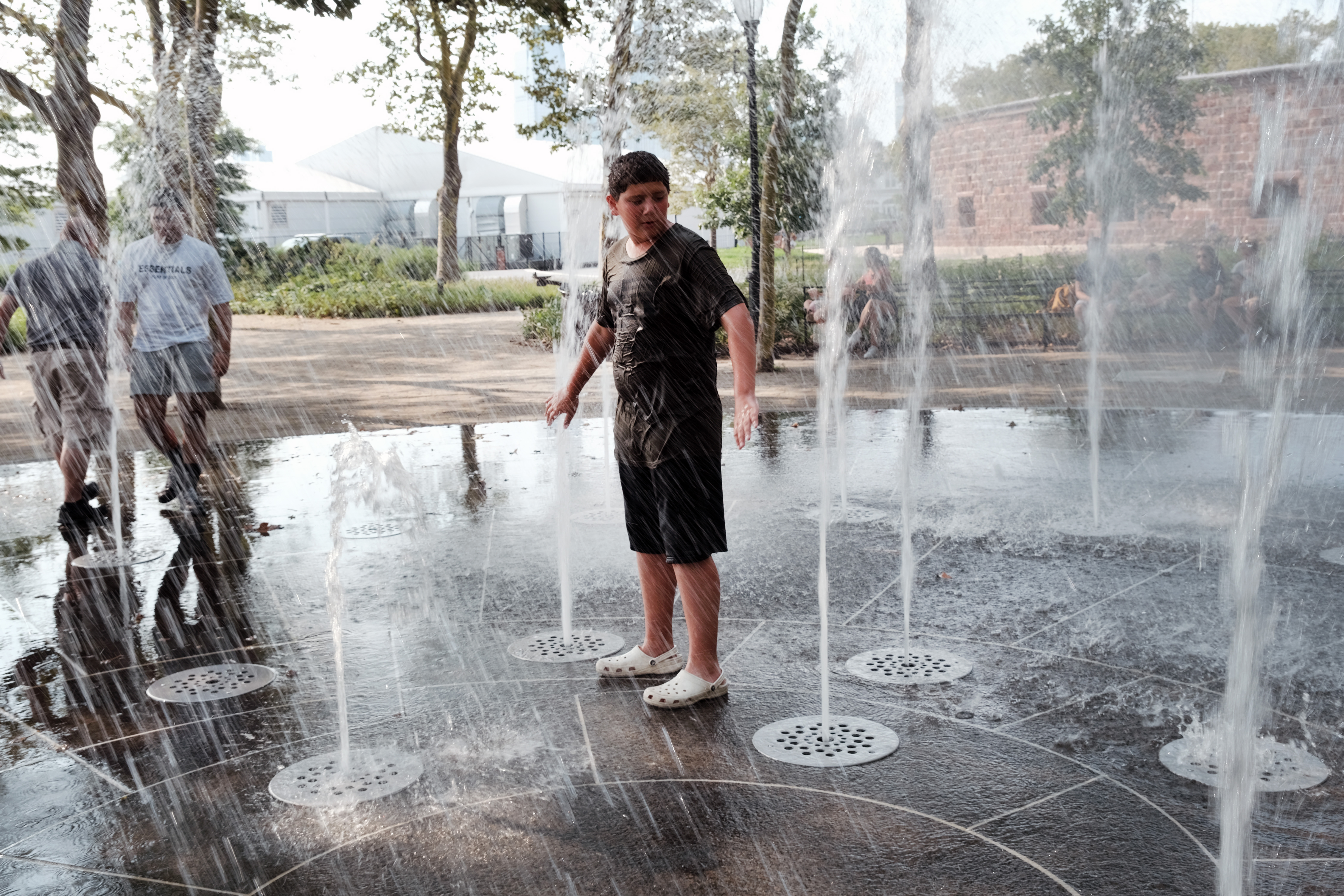It's hot. It's humid. But that's normal for summer, right?
No. New York City and surrounding areas have been placed under excessive heat warning Thursday and Friday, according to the National Weather Service, and it's important to know the signs of dangerous heat-related illnesses.
The last time the city was issued an excessive heat warning was in August 2021, NYC Emergency Management Commissioner Zach Iscol said in a news conference Thursday morning. The peak of the intense heat is forecasted for around noon through 8 p.m., he said, but it's important to be mindful of the higher-than-normal temperatures through the night -- especially for at-risk groups like children and the elderly.
Among the most serious heat-related illnesses that can occur is heat stroke, according to the Centers for Disease Control and Prevention. These are the warning signs you should watch out for, and what you should do when you or your loved ones experience the symptoms:
Signs of heat stroke
- High body temperature
- Hot, red, dry or damp skin
- Fast, strong pulse
- Headache
- Dizziness
- Nausea
- Confusion
- Passing out
Get Tri-state area news delivered to your inbox. Sign up for NBC New York's News Headlines newsletter.
Heat stroke occurs when the body is unable to regulate its temperature. This happens when the sweating mechanism fails and the body cannot cool down, according to the CDC.
Having a heat stroke can cause the body temperature to rise to 106°F or higher within 10 to 15 minutes.
How to treat someone with heat stroke
If you see any of the listed signs, call 911 immediately because a heat stroke can be life-threatening. Then move the person to a shady area and cool them off with something, but do not give them anything to drink.
Signs of heat exhaustion
- Heavy sweating
- Cold, pale and clammy skin
- Fast, weak pulse
- Nausea or vomiting
- Muscle cramps
- Tired or weakness
- Dizziness
- Headache
- Fainting
How to treat someone with heat exhaustion
Move the person to a cool place, and give them some water to sip. Some cooling methods include wetting the skin, soaking clothing with cool water, or giving them a cold shower or ice bath if possible.
Call 911 if symptoms last more than an hour, if they get worse or if they are throwing up.




